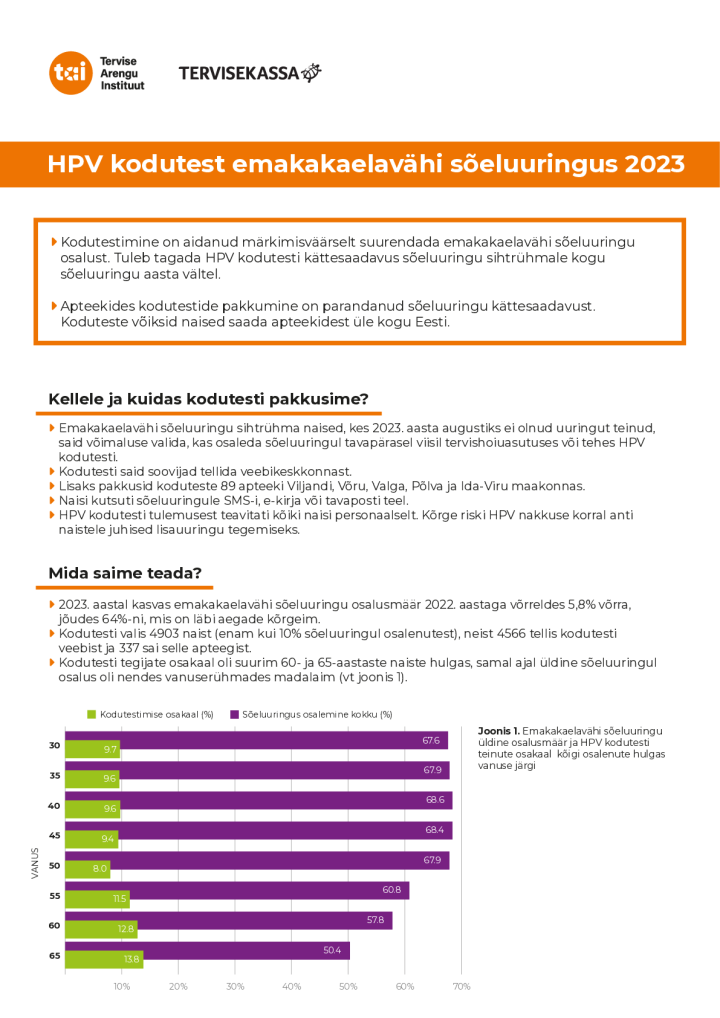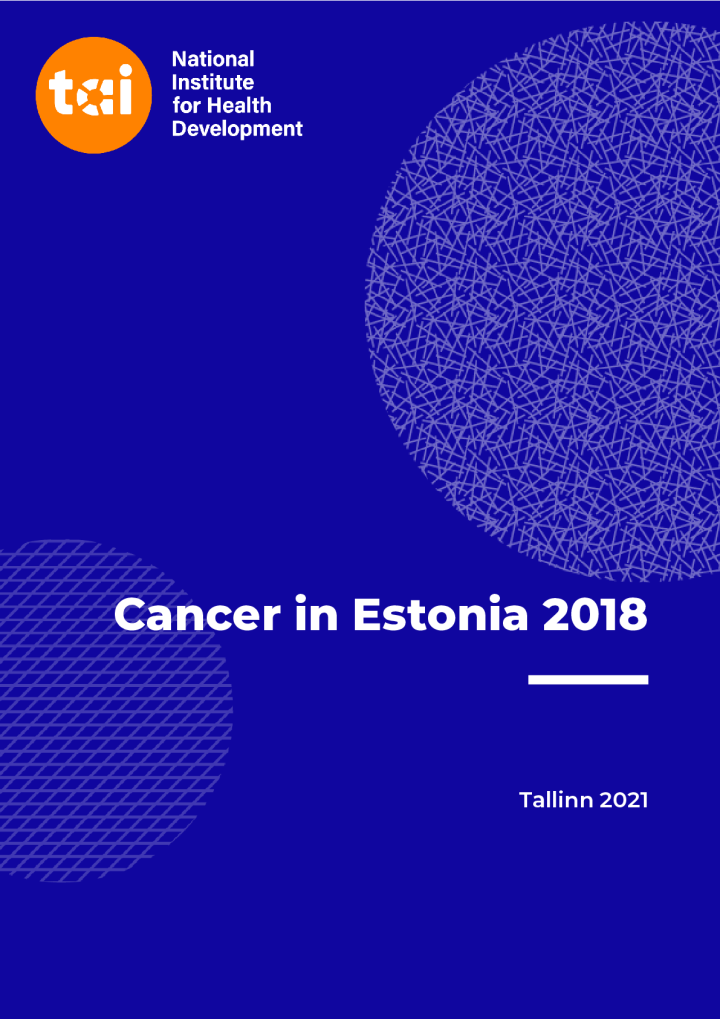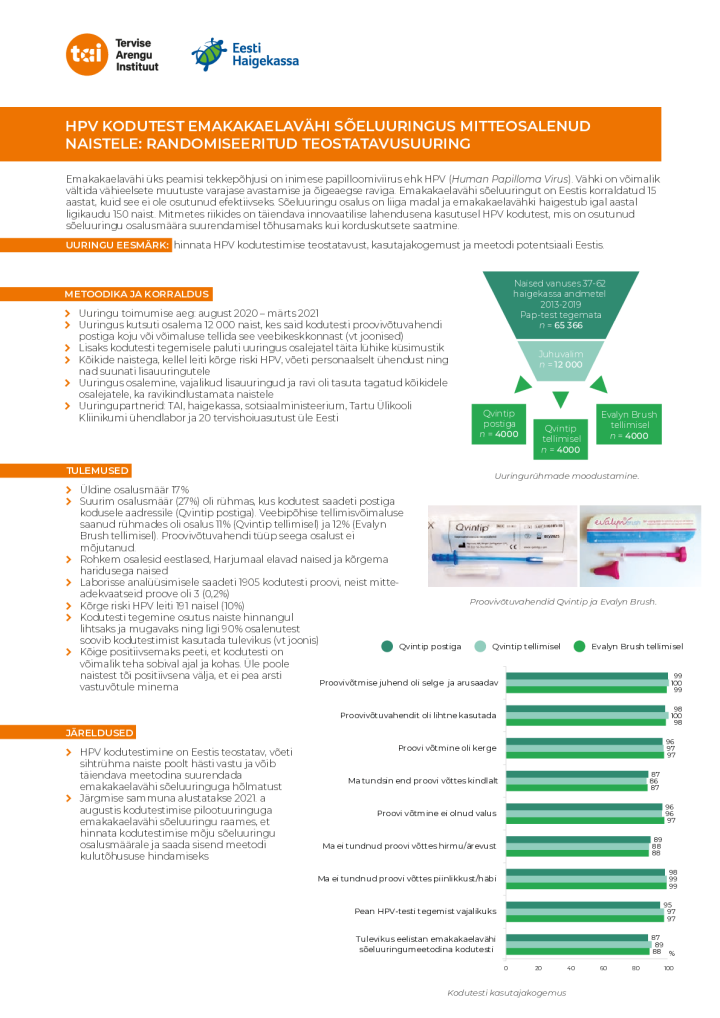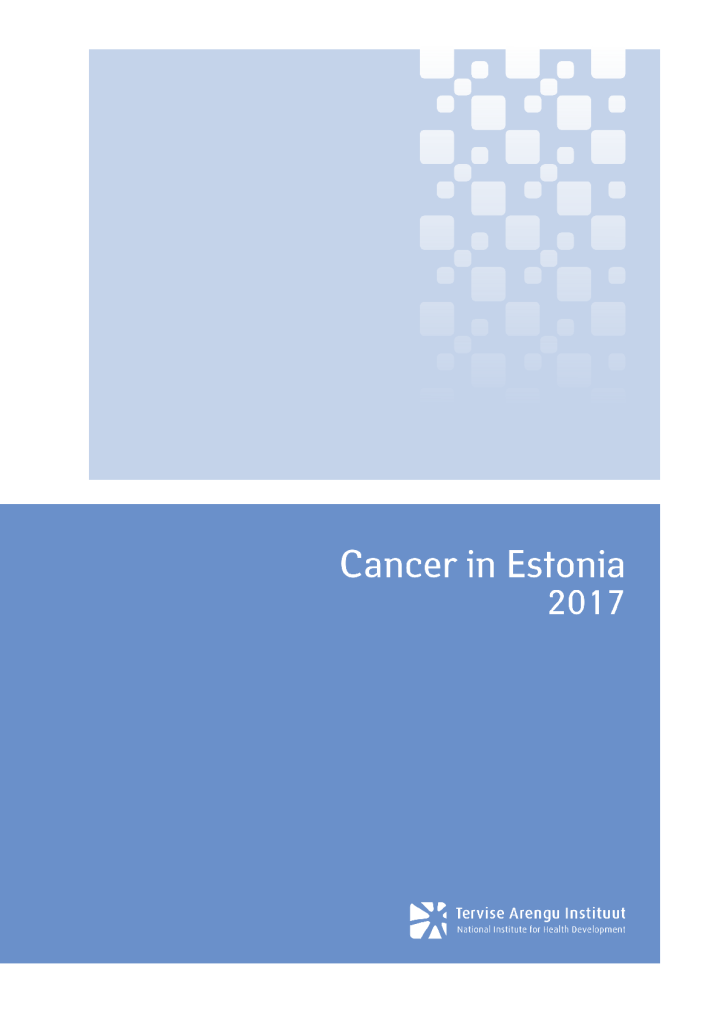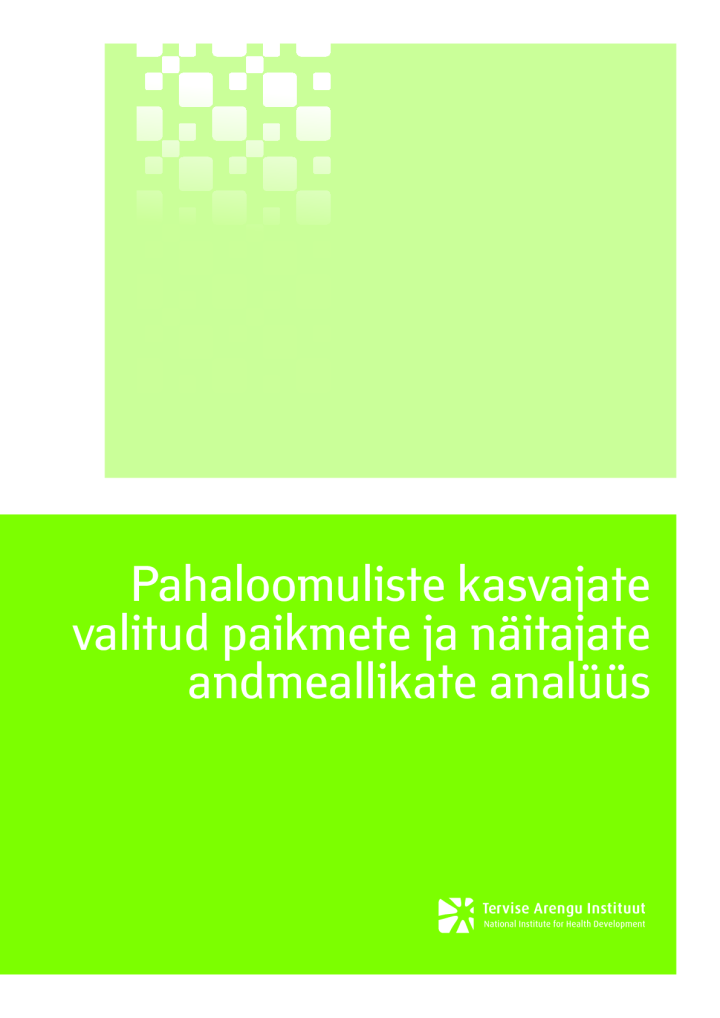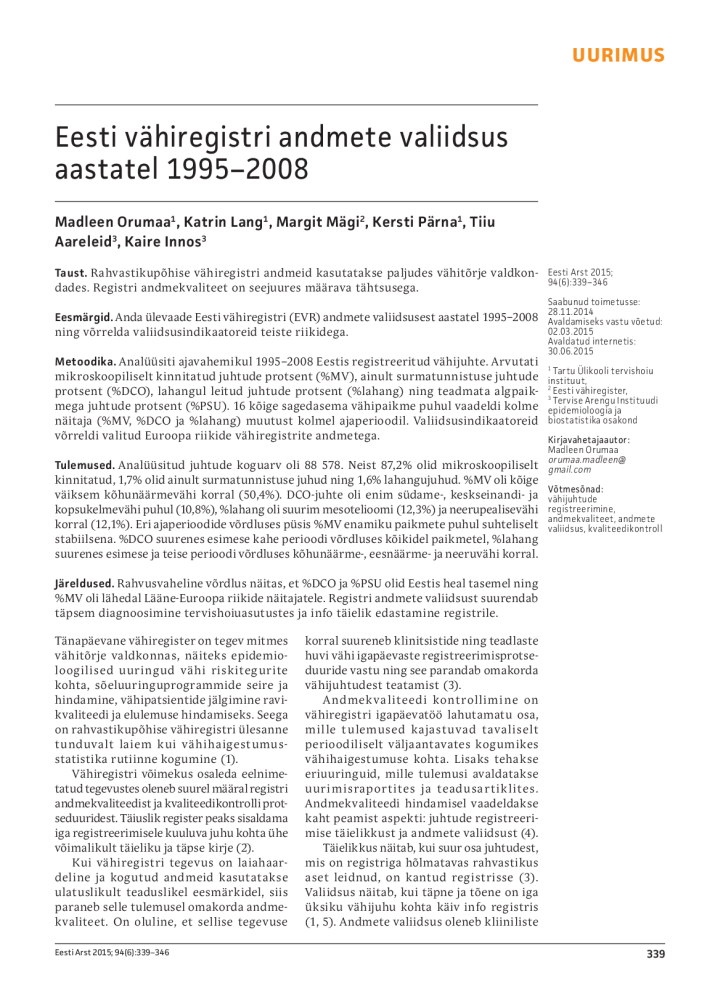Cancer control
Registries and studies
- Maintaining the national cancer registry, which provides the basis for population-based cancer incidence and survival statistics.
- Maintaining the national cancer screening registry, which provides data for analysing and evaluating the effectiveness and quality of screening programmes.
- Data on cancer incidence and screening can be found in the Health Research and Statistics database.
- Publishing the results on cancer incidence, staging and survival analyses together with interpretation in annual reports.
- Carrying out epidemiological and register-based cancer research and collaborating with partners in Estonia and internationally.
- The results of our studies enable the evaluation of the effectiveness of cancer control and contribute to clinical decision-making.
Cancer prevention and health policy
- Addressing cancer risk factors, such as unhealthy diet, excessive alcohol consumption, tobacco use.
- Development of the Estonian National Cancer Control Plan 2021–2030 and contributing to its implementation and evaluation.
- Contributing to the development and updating of screening programmes.
- Disseminating evidence-based information to the public, health professionals and policy makers.
- Collaborating with different health institutions, universities, ministries and organisations in Estonia and abroad.
Screening
- Contributing to the implementation of breast, cervical and colorectal cancer screening programmes in cooperation with the Health Insurance Fund (Haigekassa).
- Supporting the operation of mobile mammography units.
- Promoting the implementation of HPV self-sampling as a new and reliable way to participate in cervical cancer screening.
- Participating in feasibility and pilot studies for lung cancer screening.
- Evaluating the implementation and results of cancer screening programmes.
Support for cancer patients
- Supporting the prevention activities of the Estonian Cancer Society.
- With the help of the non-profit organisation MTÜ Pallium, we will develop a network of hospitals to provide palliative care for cancer patients as close to home as possible, and hospital care for those who can no longer manage independently at home.
- In cooperation with partners, issuing publications and leaflets.
